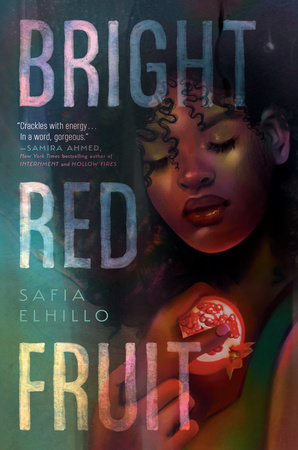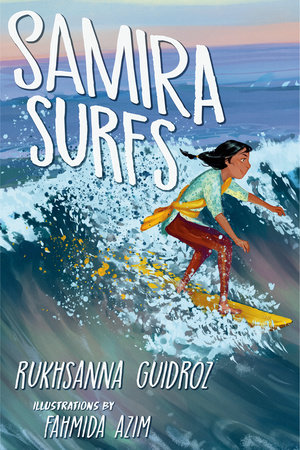
Elhillo, Safia. Home Is Not a Country. 2021. 224p. Make Me a World, $17.99. (9780593177051). Grades 8-12
Written in verse, Home Is Not a Country by Safia Elhillo is a novel in four parts of a young woman, contextually indicated to be Sudanese American, in the diaspora struggling to place her identity within the world around her.
Nima sees herself as a shadow of the girl “she could have been,” if only she was given the name Yasmeen instead of Nima. Elhillo navigates the literal and metaphysical power of a name and the effect it has on a person’s identity, constructing the story from this inadequacy felt by Nima. Nima’s family, community, language and physical traits also become a source of conflict for her, building upon this idea of identity, questioning belonging, and being one’s own biggest enemy. There is culture, religion, history, and trauma behind Nima’s name, and readers follow her journey in learning about its origin.
In the first two parts of the novel especially, these identity markers are a source of confusion and sometimes disdain for the main character. As this conflict hits the peak of its extremity, Elhillo introduces mystical and fantastical elements to the story, one in which Nima further explores her history and comes to terms with what her name is, where she comes from, and the sacrifices of those around her that she thought she knew. The last two parts of this novel are the real standouts: the whimsy, the unexpected turn of events, the exceptional and lyrical use of language as we follow along the story. Elhillo creates a metaphor for searching for your history and learning about your past in a most unexpected way that really elevates this novel. As this story is written in verse, the pace moves quickly as the reader follows Nima into her hole of self-doubt and dwindling self-worth. At first the poems feel like a collection, connected but not necessarily a linear telling. But as the novel moves along in Nima’s journey the poems start to feel more like a continuous story.

 Nima and her family’s Muslim and Sudanese background is hinted at throughout the novel, and there is Arabic script used in the text. Dialogue and commentary from other characters are in italics and ampersands are used in place of the word “and.” Set against the backdrop of 9/11, Nima and her small community’s religion, brown skin, and assumed foreignness, make them a target of Islamophobia. Nima notices how this heightened awareness of growing hostilities push her mother to change the manner in which she observes hijab as a way of avoiding violence and discrimination. Her childhood friend, also a Sudanese American Muslim, is brutally attacked. In these moments, so natural to the story, readers are given a contextual and historic representation of what it was like to be visibly Muslim at that time. These two points of friction–Nima’s internal struggle and the outside discrimination, flow in tandem with each other, and at times, overlap as points of conflict. They also play into the possibilities and feelings of loss in the could-have-beens often felt by those removed from their heritage countries, and for Nima’s place and time.
Nima and her family’s Muslim and Sudanese background is hinted at throughout the novel, and there is Arabic script used in the text. Dialogue and commentary from other characters are in italics and ampersands are used in place of the word “and.” Set against the backdrop of 9/11, Nima and her small community’s religion, brown skin, and assumed foreignness, make them a target of Islamophobia. Nima notices how this heightened awareness of growing hostilities push her mother to change the manner in which she observes hijab as a way of avoiding violence and discrimination. Her childhood friend, also a Sudanese American Muslim, is brutally attacked. In these moments, so natural to the story, readers are given a contextual and historic representation of what it was like to be visibly Muslim at that time. These two points of friction–Nima’s internal struggle and the outside discrimination, flow in tandem with each other, and at times, overlap as points of conflict. They also play into the possibilities and feelings of loss in the could-have-beens often felt by those removed from their heritage countries, and for Nima’s place and time.
The what-could-have-beens always tend to seem like the greener pasture, but only because we never have a chance to actually live those alternate realities. The ability for Nima to explore her sense of self and intergenerational trauma through this existential journey, stories less often written or recognized for characters, and particularly women of color, makes this novel an important read. Readers who relate to Nima’s cultural and/or religious background tend to live with certain expectations that come with belonging to the diaspora. This also may include feeling disconnected to the characteristics and cultural practices, especially when faced with heightened discrimination or isolation. Nima’s journey, explored through this mystical magical realism, encourages readers to go on one of their own and explore that history which seems far away or out-of-reach. This story also examines the mystique of a parent that their children may find hard to bridge, that, when and if it is explored, humanizes them and paints a clearer picture of why they are the way they are. Elhillo creates a story that considers this unknown territory and gives young adult readers a moment to reflect on how their own generational histories may hold more revelation than they are aware of.
Home is Not a Country beautifully explores a young person’s struggle in finding her identity as well as the journey to her self-acceptance–of herself, her history and her name.

 Golden Girl
Golden Girl This review was originally published in
This review was originally published in 

 Nima and her family’s Muslim and Sudanese background is hinted at throughout the novel, and there is Arabic script used in the text. Dialogue and commentary from other characters are in italics and ampersands are used in place of the word “and.” Set against the backdrop of 9/11, Nima and her small community’s religion, brown skin, and assumed foreignness, make them a target of Islamophobia. Nima notices how this heightened awareness of growing hostilities push her mother to change the manner in which she observes hijab as a way of avoiding violence and discrimination. Her childhood friend, also a Sudanese American Muslim, is brutally attacked. In these moments, so natural to the story, readers are given a contextual and historic representation of what it was like to be visibly Muslim at that time. These two points of friction–Nima’s internal struggle and the outside discrimination, flow in tandem with each other, and at times, overlap as points of conflict. They also play into the possibilities and feelings of loss in the could-have-beens often felt by those removed from their heritage countries, and for Nima’s place and time.
Nima and her family’s Muslim and Sudanese background is hinted at throughout the novel, and there is Arabic script used in the text. Dialogue and commentary from other characters are in italics and ampersands are used in place of the word “and.” Set against the backdrop of 9/11, Nima and her small community’s religion, brown skin, and assumed foreignness, make them a target of Islamophobia. Nima notices how this heightened awareness of growing hostilities push her mother to change the manner in which she observes hijab as a way of avoiding violence and discrimination. Her childhood friend, also a Sudanese American Muslim, is brutally attacked. In these moments, so natural to the story, readers are given a contextual and historic representation of what it was like to be visibly Muslim at that time. These two points of friction–Nima’s internal struggle and the outside discrimination, flow in tandem with each other, and at times, overlap as points of conflict. They also play into the possibilities and feelings of loss in the could-have-beens often felt by those removed from their heritage countries, and for Nima’s place and time.  Samira Surfs By Rukhsanna Guidroz
Samira Surfs By Rukhsanna Guidroz